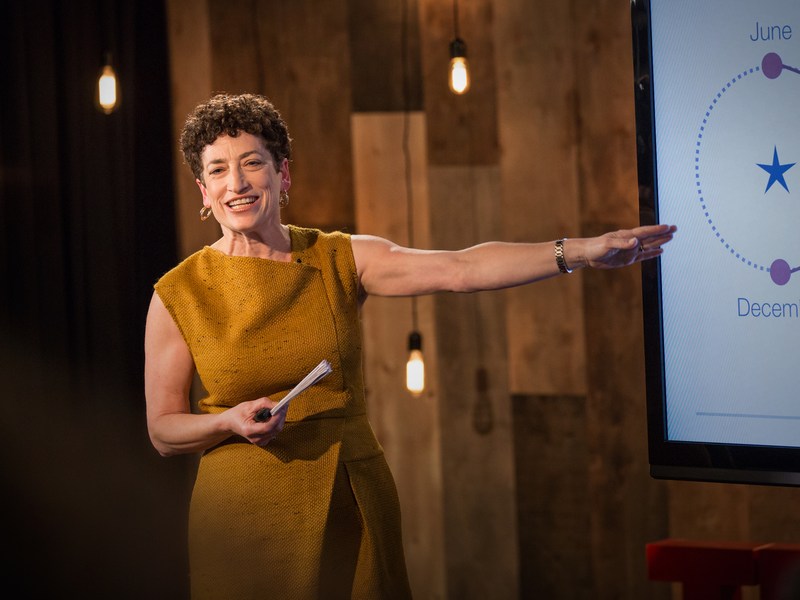Scientists should not be ‘advocates’ or ‘activists’.
I’ve heard this argument over and over in the last couple of years, and more strongly since the elections and recent organization of the March for Science scheduled for April 22, 2017.
The discussion first came to my awareness back in January 2015, when I attended an Association for Women in Science (AWIS) panel called “Social Media and Activism in Science”. The general feeling was that if you wanted to speak up, be careful about what you say. I was particularly inspired by Kathy Barker, author of At the Bench and At the Helm. She is an advocate for scientists being advocates.
During my 2016 summer graduate ethics course, we discussed that scientists, if they advocate or speak outside their scientific field, should make sure they explicitly state they are wearing different hats and sharing their opinions as “informed citizens”.
The conversation came up again in October during a panel at the inaugural celebration of California Leatherback Day hosted by NOAA’s Southwest Fisheries Science Center. One speaker adamantly stated that scientists should not be advocates in any way to which one audience member publicly disagreed bringing up the point that scientists are the most informed and should be able to speak about what they know.
Then again, as tensions continued to stir amongst the scientific community with the new presidential administration disregard for science (Time, The Washington Post, The New York Times, The Guardian, Scientific American, Snopes), scientists banded together to organize a march much like the Women’s March on Washington.
“The mischaracterization of science as a partisan issue, which has given policymakers permission to reject overwhelming evidence, is a critical and urgent matter. It is time for people who support scientific research and evidence-based policies to take a public stand and be counted.” ~March for Science
I watched as my science friends circulated news of the march over Facebook. Some shared confidently, others apprehensively. The reactions ranged, airing a plethora of concerns: from “A march will mischaracterize science”, “It will make science a political protest”, “A march will undermine [scientists] credibility”, to “Its a great thing”, “Shows solidarity”, “This will encourage the scientific community to publicly rally together”, “Science cannot be silenced”. Robert Young of the New York Times even wrote a widely circulated piece on why the march is a bad idea voicing his concerns and alternate suggestions for what scientists can do in the community. In a Science article, Jeffrey Mervis shared Some Unsolicited Advice to the science march planners.
The whole time, I kept wondering: Why not? Why shouldn’t scientists speak up? And more importantly, I thought: WHO wants us to be silent? Our colleagues, the public, policy makers?
As a young researcher, with no credibility yet gained, figuring out how best to proceed on this facet of my career is a high priority for me.
In my reading of the freely available document On Being a Scientist: A Guide to Responsible Conduct in Research, I hadn’t come across any mention to keep quiet. On the contrary, the guide addresses this issue in the section titled, The Researcher in Society (see page 48; for copyright reasons I cannot reprint any text without charge, and since I’m a poor grad student, I’ll just paraphrase.). Scientists have a responsibility to share their knowledge with society. Researchers CAN assume different roles in public discussions and provide expert opinion and advice; they have a right to express their views and to work for social change. The guide even acknowledges the concern that colleagues and members of the public may perceive scientists-gone-advocate as a biased individual, but this perception should not come at the expense of objectivity in the scientist’s work.
In my opinion, scientists have devoted their lives to studying certain issues in their field. Their ideas are scrutinized by peer-review and the scientific collective. As professionals and the most “informed citizens” on the issue, aren’t they the best group of people TO be speaking up about what they know?
This might also strike a chord with me personally because I am a naturally shy person. Speaking up has been something I’ve worked on since the awkward stage of middle school. It’s also reminiscent of the time when I was learning to speak French and we were told the French are very particular about their language and do not like it butchered. The first time I ever traveled to France I was so paranoid I would mess up the accent that I didn’t speak for the first couple of days. Then I realized, many travelers were visiting France doing their best to communicate, botching the language left and right, and guess what? No one died, no one got beat up, people were talking! So I started talking too. I had fun interacting with Francophones, and I got better at it over time. As an adult, the idea of “someone” now saying I should be quiet on certain issues, to not ruffle feathers, for fear of being misinterpreted, actually feels like a threat to my own growth as a communicative human. The more we take opportunitites to practice sharing our ideas with a general audience, the better we will get at it over time.
Going back to the issue of scientists being ‘advocates’ if they speak up, I finally gained clarity on where I stand on the matter after hearing speakers at two public events:
On February 18th 2017, the Union of Concerned Scientists held a panel at the AAAS – The American Association for the Advancement of Science annual meeting titled Defending Science and Scientific Integrity in the Age of Trump. The general consensus was that we should come together, stand up and speak up.
And most recently, I attended a very insightful public lecture by Naomi Oreskes on March 14th, 2017. The Scripps Institution of Oceanography Master of Advanced Studies in Climate Science and Policy (MAS-CSP) program invited her to speak on “The Scientist as a Sentinel”.

Dr. Oreskes speaking at TED (Image credit: TED)
Naomi Oreskes is a historian of science, a Professor of the History of Science and Affiliated Professor of Earth and Planetary Sciences at Harvard University. She is also well known for co-authoring Merchants of Doubt, a book that was required reading during our summer course.
I was excited to hear in person her elaboration of the invitation teaser:
“Scientists are often reluctant to speak in public on contested issues, for fear that this will “politicize” their science and have a negative impact on their credibility. During the lecture, Dr. Oreskes will examine these concerns by exploring historical examples of scientists who have spoken up on scientific issues of broad importance, including nuclear weaponry, ozone depletion, and climate change.”
The talk was solidifying for me. The biggest take-away I jotted down addressed the following:
“Scientists will lose credibility. If we speak up we’ll be viewed as activists or advocates.”
She reminded us that this is not a modern issue.
Scientists throughout history have dealt with their work being silenced and the need to speak out. Traditional thought has held that ‘facts speak for themselves’. If scientists just put the facts out there, all will be good.
But the catch is, they don’t. #AlternativeFacts
As a historian, Dr. Oreskes looked at many individuals who were well respected in science, and who became strong public figures. In no historical cases did speaking out undermine their credibility, and no nobel prizes were revoked. In fact, she deduced that scientists weren’t targets because they spoke out. They became targets because of the great implications of the work they were doing (theory of evolution, nuclear weaponry, ozone hole depletion, atmospheric CO2, etc.), which then drew them to speak publicly exactly because their work was being attacked.
Instead of two extremes: keeping quiet, or being so outspoken you get arrested, she argued for a Responsible Scientists Ideal, urging that we as knowledgable professionals have an obligation to speak up and advocate for specific policies that control matters which threaten human health and life on this planet.
And while we cannot specifically answer questions outside of our field of expertise, we can forge collaborations with experts who are able to address policy, economic, and social questions. She encouraged us that it is OK to do some extra homework and look into what experts of those fields are saying; to offer some potential solutions to our human-caused problems. If we come across situations where facts are totally disregarded, like with the denial of climate change, we can flip the argument and instead talk about values. About losing freedoms, fairness, accountability, realism, leadership in advanced technology, and good ole hard work.
I want to echo what Naomi shared with us:
The facts don’t speak for themselves. Someone has to speak up for them…and that is us, [the scientific community].
I would love to know what discussions you’ve had about this topic and how you’ve approached the argument ‘To speak, or not to speak’.
Update: On April 11, 2017, Nature released an article in support of the March for Science. Read that article here.
Share this:







































Recent Comments